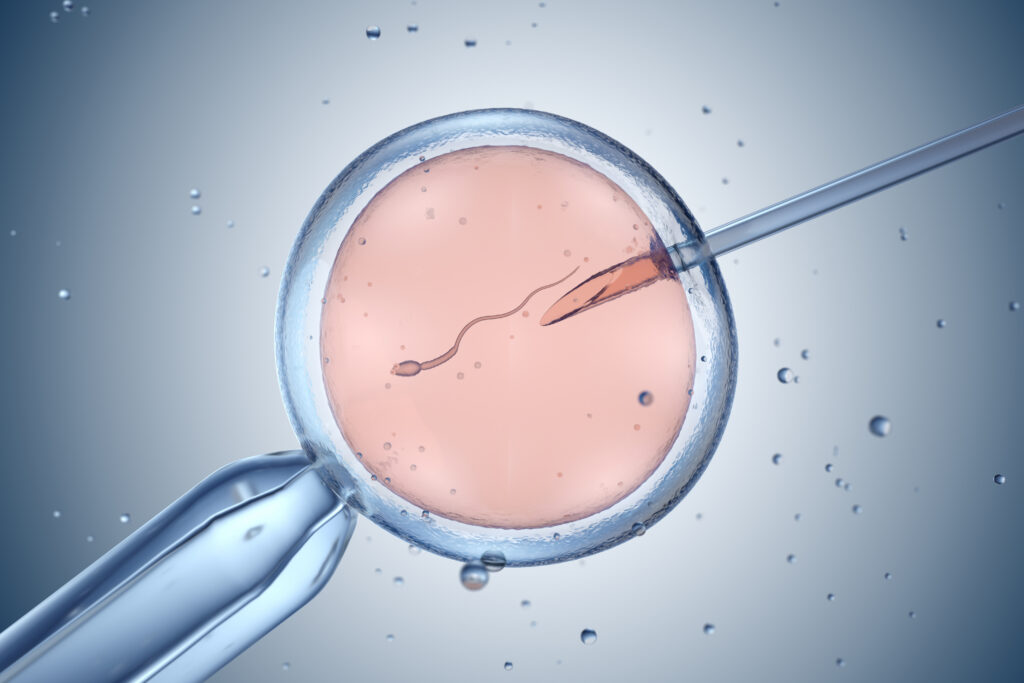Public Comment: Lozier Institute on CDC’s Notice of Proposed Modifications to Assisted Reproductive Technology Program Reporting
On January 25, 2024, the Charlotte Lozier Institute submitted a public comment to the Centers for Disease Control and Prevention (CDC) regarding newly proposed modifications related to data collection and reporting from assisted reproductive technology (ART) programs and modifications to data validation procedures. Specifically, newly proposed changes include “remov[ing] the requirement for clinics to report dosage information for fertility medications,” “remov[ing] the requirement for clinics to report information on research cycle study type,” “add[ing] the requirement for clinics to report date of cryopreservation for fresh embryos,” and the CDC proposal “not to pursue targeted validation of clinics and identification of major data discrepancies.”[1]
In light of the fact that none of these proposed changes recognized the inherent value and dignity of nascent human beings created from ART programs, including in vitro fertilization (IVF), CLI took the opportunity to encourage the CDC to do so and to consider limiting, reporting, or regulating “the number of living embryos destined for research and destruction.”[2]
CLI’s public comment is reproduced in full below. Along with the comment, CLI also submitted two of its On Science papers for full references and longer discussion: “Handbook of Nascent Human Beings: A Visual Aid for Understanding the Science and Experimentation” and “A Handbook of Bioethical Considerations Regarding Nascent Human Beings and Their Cells (Handbook of Nascent Human Beings II).” These, along with the CDC proposed modifications, can also be found at Regulations.gov here.
__________________________________________________________________________________________
Upon review of the modifications proposed, we see no efforts to limit, report, or regulate the number of living embryos destined for research and destruction. This is concerning given the gravity of the situation in this nation in which hundreds of thousands of human embryos are created and destroyed without any proper oversight.
1. Every human being is a precious human life, from the moment of conception, with inherent dignity and value.
2. At the moment of their conception by fertilization, new human beings (nascent human beings) are called zygotes, and they are alive. They take up chemical energy from their environment and turn it into the unique cell work of life, self-duplication, which only living cells can do. They have a full-complement human genome (DNA) activated by the unique cytoplasm of the egg for spontaneous and independent human development. In the instant of their conception, their full-complement of human DNA is sufficient to achieve the constituents, properties, and activities that define single-celled nascent living human beings.
3. Nascent human beings conceived by artificial processes (e.g., in vitro fertilization, IVF) who are of zygotic age differ from naturally conceived human beings only in where and how their conception occurred. In the case of IVF, fertilization occurs in vitro, i.e., outside of the womb, “in a test tube” or “in a petri dish.”
4. Human beings and their cells that are produced by any type of “artificial” means, such as IVF, do not necessarily connote that they are unnatural. Their origin and scientific inspiration are still from human organisms and/or biological functions occurring naturally in nature. All nascent humans being produced using artificial means, and the cells derived from them, have the essential nature and properties of human beings and their cells conceived by natural processes. Therefore, human embryos from assisted reproductive technologies have the same moral significance; and they require the same bioethics considerations before use for biomedical experimentation.
5. In the United States, human embryos generated in fertility clinics via in vitro fertilization, not destined for implantation, may be donated for research.
6. The bioethics considerations for experimentation with embryonic human beings is entwined with IVF and assisted reproduction. Human embryonic stem cell (hESC) research is a key reason given as justification by those who wish to pursue procurement and use of IVF human embryos for experimentation. The experimentation is motivated by the attributes of human zygotes as nascent human beings, who will autonomously progress with their development from embryonic stages to fully mature human beings if supportive nutrients and conditions for growth are supplied.
7. Human embryonic stem cells (hESCs) are derived in culture from the epiblast cells of embryonic nascent human beings after they complete their blastocyst development. Human embryonic stem cells (hESCs) are derived from the inner cell mass of a day-5 blastocyst embryo. The human embryo is disrupted and destroyed during hESC research.
8. The moral trespass of experimentation with hESCs occurs in the instant of their production. Embryonic nascent human beings of blastula age (3-5 days post-fertilization) are living human beings, who merit the same respect and care as human beings at later ages of their development and lives.
9. Human ESCs have been the subject of major public sociopolitical, religious, and research bioethics debates on the moral and ethical permissibility of producing them and using them. Despite efforts to protect embryonic nascent human beings from death in the hESC research industry, currently, private institutions are generally free to conduct this form of human experimentation; and many government-funded research institutions have developed guidelines and regulations for their continued production and usage of hESCs.
10. All research that creates, exploits, manipulates, and destroys human beings at any stage of development is controversial and unethical, because it involves the intentional harm and destruction of nascent human life.
__________________________________________________________________________________________
[1] CDC, “Reporting of Pregnancy Success Rates From Assisted Reproductive Technology (ART) Programs; Proposed Modifications to Data Collection Fields and Data Validation Procedures; Request for Comment,” November 28, 2023, 83131, https://www.regulations.gov/document/CDC-2023-0093-0001.
[2] Charlotte Lozier Institute, “Comment from Charlotte Lozier Institute,” Regulations.gov, January 29, 2024, https://www.regulations.gov/comment/CDC-2023-0093-0004.
























